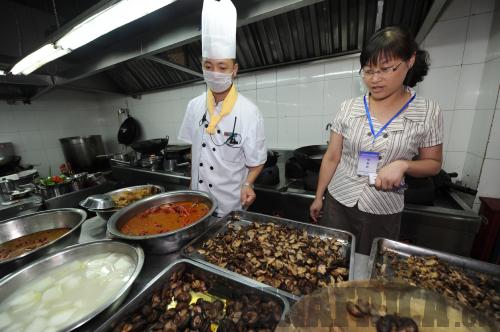| 
Tax Exempted
Import tax exemption on equipment used in oil and gas drilling programs was granted by the Chinese Government in order to support the drilling industry, according to a statement released on the website of the Ministry of Finance on September 1.
The statement said equipment, instruments, accessories and special purpose tools that domestic companies can't produce and are directly used in exploration will be exempt from import tax.
Tax-exempt drilling programs should be those being operated from January 1, 2011 to December 31, 2015. They include projects on desert and barren beaches in Chinese territory, land blocks jointly exploited by Chinese and foreign companies under the permission of Chinese Government, inland seas, territorial waters, continental shelves, and other maritime resources under China's jurisdiction.
Tax Exemption for Couples
China's Ministry of Finance said married couples will not be required to pay tax when adding a spouse's name to the property ownership certificate, in a response to local bureaus' recent introduction of such taxation policy.
The new policy came into effect on August 31.
After the new judicial explanation of the Marriage Law, Nanjing, Jiangsu Province, announced a 3-percent tax for transferring the registration of property ownership within marriage, and Wuhan, Hubei Province, set a 4-percent rate.
The explanation taking effect in August stipulates that property bought by one party of the couple before the marriage will be regarded as his or her personal property, not their joint estate.
It caused many women to have their names registered as co-owners of the property to seek security in marriage.
New Food Safety Management Rules
New rules on food safety management in restaurants, snack bars and company and school cafeterias were issued on August 31 to better regulate catering services.
Workers of catering services should examine their health condition every morning before working. Catering operators are required to establish mechanisms for waste food treatment and food safety incident prevention to control risks, said Chen Xu, an official of the State Food and Drug Administration, China's food safety watchdog.
Additives used in seasonings and beverages must be reported to food safety supervisors and be informed to consumers by posting them in dining halls or menus, Chen added.
Foreign M&As Reviewed
Mergers and acquisitions of domestic companies by foreign investors have been reviewed since September 1 to protect national security, according to a regulation issued by China's Ministry of Commerce.
The new regulation states if any mergers and acquisitions involving foreign investors are determined to be a threat to the country's security, they should be terminated. Any reached deals that are found to have threatened the national security will also be terminated.
The review process involves foreign mergers and acquisitions of domestic military-industrial enterprises and supporting companies near major and sensitive military facilities and other deals that are regarded to be relevant to national security.
Reviews are also needed in foreign mergers and acquisitions of domestic companies in security-related sectors, such as agriculture, energy and resources, infrastructure and transportation.
The regulation was issued in February this year and was officially implemented on September 1.
Stricter Emission Standards
The Chinese Government is considering stricter emission standards for thermal power plants, possibly leading to an increase in the financial burdens on the plants that are already in the red.
The Ministry of Environmental Protection released the details of the new standards in late August and has had it open to solicit public opinions.
Different from the previous version issued earlier this year, the latest one reduces the maximum standard for nitrogen oxide emission by half to 100 milligrams per cubic meter for power plants with denitration facilities or designed to have such facilities. Sulfur dioxide emission is limited to 100 milligrams per cubic meter for new thermal power plants.
The new version also proposed new standards for air pollutant and mercury in key areas, according to the ministry.
So far, the government has no plan to increase power prices to subsidize power plants in case it aggravates current inflationary pressure. |